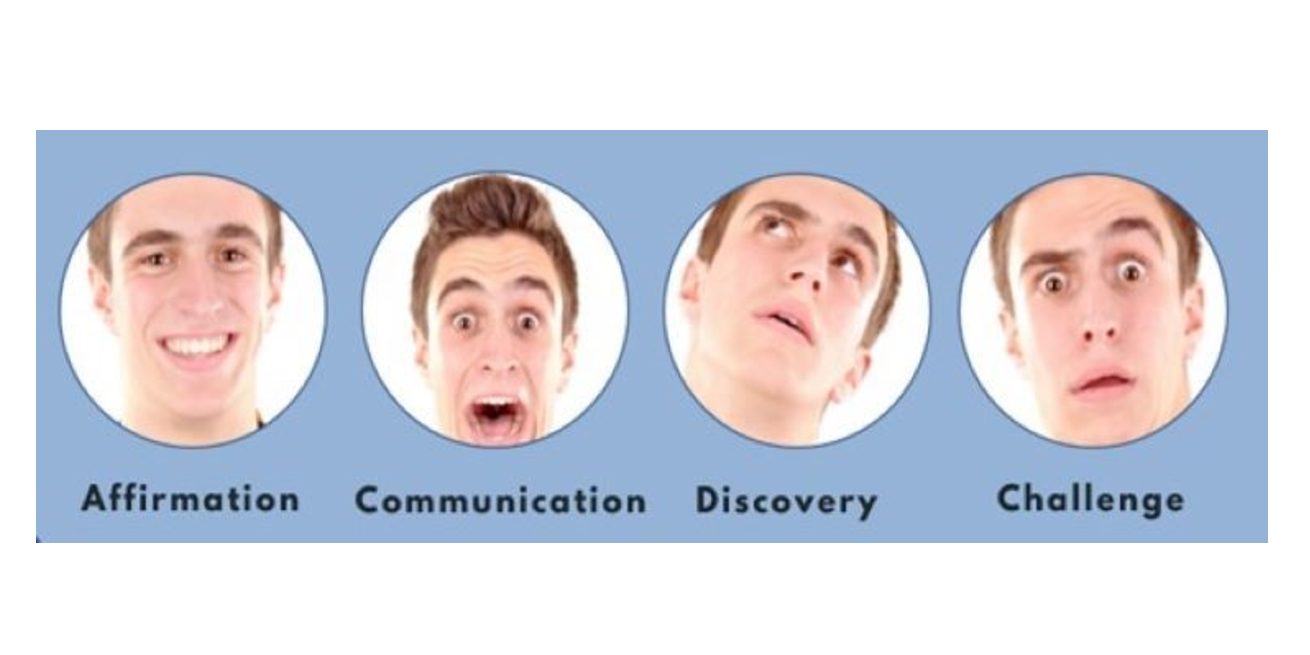
You may like to consider what people find useful about any feedback, but this blog, written by Roy Childs PhD. is specifically about psychometric profile feedback.
What I hear people say is:
Me: ‘How useful was the psychometric feedback session?’
Coach: ‘It was very useful’.
Me: ‘Why? What was good about it?’
Coach: ‘Well, they basically agreed with it’
However, all learning and development is predicated on change. People agreeing with their psychometric profile does not suggest change – it suggests affirming their pre-existing view of themselves. Whilst this has its place, there is so much more that can be achieved. The 4-part ACDC process is to remind you of what to look for and how to use it. As Will Schutz (author of the FIRO) stated so clearly – it is not the scores but the reaction to the scores that is the most important and useful. You can use the ACDC model (described below) to sensitise you to areas that you may not yet be making best use of:
This is when people recognise themselves in (some of) the profile. This is an essential part of the feedback since it provides the questionnaire with some credibility which is a necessary starting point. We recognise it when we get comments such as ‘Yes, that’s me’ and ‘That is very accurate!’
This is when people recognise themselves in the profile but find that it expresses what they already know more clearly. We recognise it when we get comments such as ‘That’s an interesting way to put it’ and ‘I hadn’t thought of it in that way before!’
This is when people see something that sparks their curiosity. We recognise it when we get comments such as ‘Hmmm, I hadn’t thought of that’ and ‘I wonder if I am more like that than I thought?’
This is when people see something that they do not recognise. We recognise it when we get comments such as ‘I don’t agree with that’ and ‘That’s wrong, I’m not like that at all.’
Too often, people stop at Point 1 – Affirmation. This is clearly useful for engaging the coachee, giving the questionnaire credibility and helping them to gather their thoughts.
Point 2 – Communication clearly takes this process further since people can find it very difficult to articulate who they are (and inviting people to complete a self-report questionnaire is essentially asking them that question). I have even had people who are embarrassed by the question! One actually said to me ‘well it’s not for me to say – you’ll have to ask others.’
Point 3 – Discovery is where we begin to add something extra – potential insight as a prelude to helping people develop their auto-biographical narrative. The person is potentially extending or re-arranging how they currently view and describe themselves. Those familiar with Lewin’s change model (unfreezing-changing-refreezing) will recognise how this is beginning the unfreezing process required before change can occur.
Point 4 – Challenge is where there can be the strongest reaction to a questionnaire. There can be a great temptation to go along with the person’s perception because, after all, they ‘know’ themselves and the questionnaire can be wrong. However, this reaction can often be the gold-dust in the change process – especially if the reaction is quite strong and emotional. Using the 1% rule (i.e. that there is always at least 1% of truth in all the feedback we receive) we can invite the person to explore their reaction more thoroughly.
Here are some questions that can be useful:
If you want to watch a video which introduces this idea click below:
Should Coaches Use Psychometrics Part 1 – Clarifying misunderstandings (19mins)
Should Coaches Use Psychometrics Part 2: Reframing psychometrics (23mins)

Roy Childs, Managing Director of Team Focus, is an Associate Fellow of the British Psychological Society and, like many other senior staff members, a Chartered Occupational Psychologist. The Team Focus mission is to make people and relationships the focus for organisations to become successful and ethical. To this end Roy works as a facilitator, coach and trainer and combines a highly experiential approach with a clear practitioner focus. His background in psychometrics includes having worked with some of the best-known authors of personality questionnaires including Ray Cattell (16PF) and Will Schutz (FIRO). With Team Focus he has developed a new range of instruments designed to bring psychometrics into the 21st century.
Read more blogs from Roy Childs: Do coaches help change behaviour or personality?